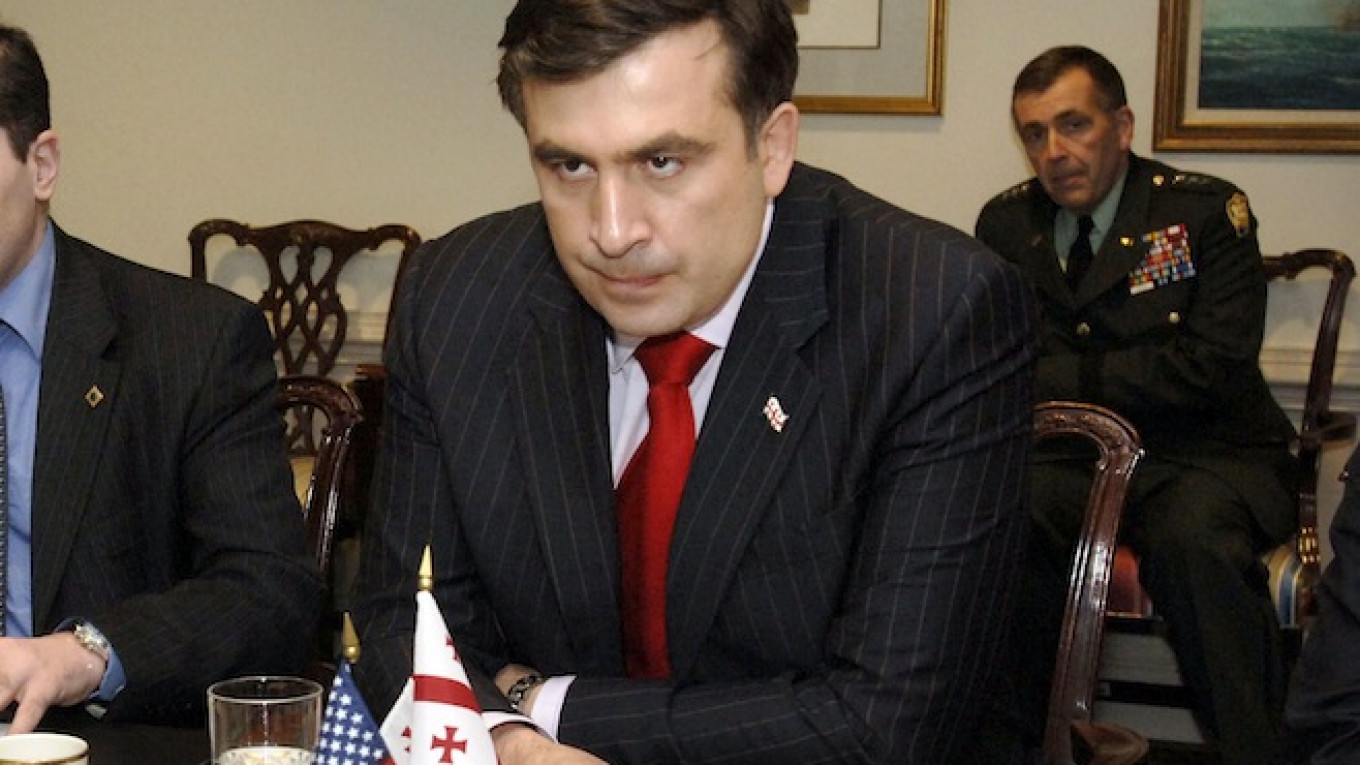The Russian Investigative Committee may issue an international arrest warrant for former Georgian President Mikheil Saakashvili over his policies in the breakaway region of South Ossetia, a spokesman said.
The comments by Investigative Committee spokesman Vladimir Markin came as a South Ossetian political party seeking the region's unification with Russia appeared to have won the Sunday parliamentary election, according to early returns Monday.
The committee may also seek international arrest warrants for former Georgian Prime Minister Vano Merabishvili and Defense Minister Davit Kezerashvili, accusing them of having pursued "the complete elimination of Ossetians living in South Ossetia," Markin said, Itar-Tass reported.
Russia has been handing out its passports to South Ossetians since the 1990s, meting out financial aid while the region turned into a haven for smuggling guns, drugs and counterfeit U.S. currency.
The dispute between Russia and Georgia over South Ossetia and another Georgian breakaway province, Abkhazia, led the two former Soviet states to fight a war in 2008 — a conflict for which each side blames the other.
"Georgia's policy toward [South] Ossetia and Abkhazia was indeed an exceptionally erroneous one," Ekho Moskvy radio host Yulia Latynina said in a recent program. "Saakashvili did the most stupid thing when he blocked off the smuggling that existed along the South Ossetian border because he thought that as soon as the stream became blocked, the South Ossetian leadership would bow to him."
"As a result, the leadership of South Ossetia bowed not to him, but to Russia," Latynina said.
The conflict left South Ossetia and Abkhazia unrecognized except by a handful of countries such as Nauru, Vanuatu and Tuvalu, though Tuvalu withdrew its recognition this year. Russia recognized both South Ossetia and Abkhazia in 2008.
Markin said that after Saakashvili stepped down and those connected to the "crimes" in South Ossetia lost their jobs, the Investigative Committee began reviewing the possibility of charging them as suspects and adding them to an international wanted list," Itar-Tass reported. The former ministers had previously enjoyed immunity from international prosecution, Markin added.
Saakashvili stepped down after serving the legal limit of two terms in office, and now works as senior statesman at Tufts University's Fletcher School of Law and Diplomacy, a graduate school of international affairs in the U.S.
See also:
With Saakashvili Out, Russia-Georgia Ties Set to Improve, but Slowly
A Message from The Moscow Times:
Dear readers,
We are facing unprecedented challenges. Russia's Prosecutor General's Office has designated The Moscow Times as an "undesirable" organization, criminalizing our work and putting our staff at risk of prosecution. This follows our earlier unjust labeling as a "foreign agent."
These actions are direct attempts to silence independent journalism in Russia. The authorities claim our work "discredits the decisions of the Russian leadership." We see things differently: we strive to provide accurate, unbiased reporting on Russia.
We, the journalists of The Moscow Times, refuse to be silenced. But to continue our work, we need your help.
Your support, no matter how small, makes a world of difference. If you can, please support us monthly starting from just $2. It's quick to set up, and every contribution makes a significant impact.
By supporting The Moscow Times, you're defending open, independent journalism in the face of repression. Thank you for standing with us.
Remind me later.






